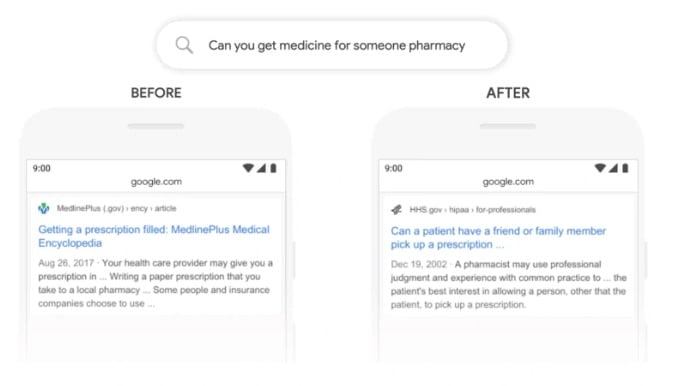
On October 25, 2019, Google announced one of the biggest updates to Search’s core algorithm in the past five years. Its name is BERT and it's a positive update for both SEO writers and content creators.
What is the Google BERT Update?
To understand BERT, it’s important to first know the core function of Search: understanding language. It’s Google’s job to figure out what you’re searching for and in return provide helpful and relevant resources, even if you misspell a few words or have no clue how to phrase your search query. In some cases, you may even resort to "keyword-ese,” typing longer and more robotic-like phrases to “help” Google decipher what you're trying to ask. These search queries often come across as awkward and unnatural sounding, which causes Google to return irrelevant or loosely related results and sends you back to square one.
Google’s BERT update helps combat “keyword-ese” with its natural language processing capabilities. BERT stands for Bidirectional Encoder Representations from Transformers. In layman’s terms, BERT helps Search process language more like a human and less like a robot.
With BERT, context is key. BERT allows Google to look at the entire context of a search query rather than each word in the exact order they appear. BERT helps Google understand how words in a search query relate to one another, meaning Google can return more relevant search results. This is a huge step forward for Search!
How will BERT affect SEarch results?
The BERT update affects both organic rankings and featured snippets. For one in every ten search queries in the United States in English, BERT will help Google do a better job matching the user’s query with relevant results, particularly for more conversational, long-tail queries and those in which prepositions like “for” and “to” are significant to the context.
BERT in Action
In addition to context, the BERT update picks up on the nuances and subtleties of human language that previous algorithm updates looked past. For instance, Google uses the example, “Can you get medicine for someone pharmacy.” Before BERT, Google’s algorithm returned general results about getting a prescription filled. Google completely ignored the context in this scenario, not fully understanding that “for someone” is a significant part of this search query. After BERT, Google produced a more relevant result about having a friend or family member pick up a prescription in your place.

How WILL BERT AFFECT YOUR CONTENT MARKETING STRATEGY?
Google created BERT to help users search more naturally and receive more relevant results. According to Google’s Danny Sullivan, there’s nothing you can do to optimize for BERT except to continue creating great content for the end-user. As an SEO writer or content creator, you can refine your content marketing strategy with BERT in mind. Keep creating well-written content that’s easy to understand and flows naturally. BERT is particularly helpful for more conversational, long-tail search queries, so if you can anticipate the questions your target audience is searching for, you can create more relevant content that is of value to your audience.
For more SEO updates, subscribe to our blog.



